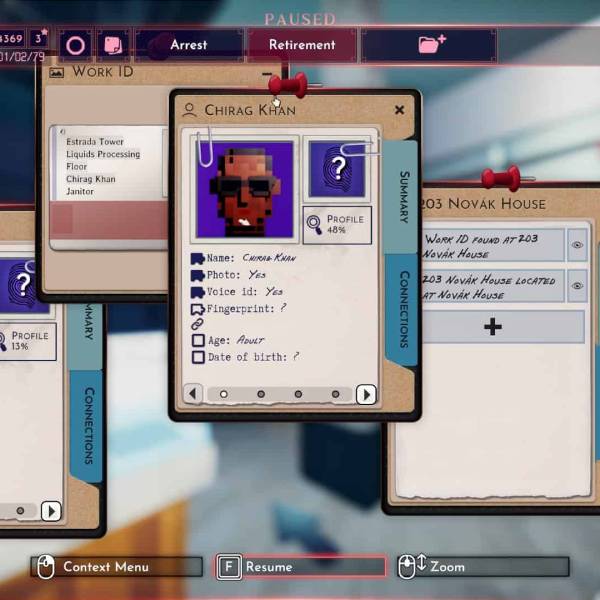Introduction to Shadows of Doubt Briefcase
The Allure of Secrecy
In our fast-paced society, many people prioritize secrecy over transparency. This emphasis creates an environment filled with uncertainty and mistrust. The “shadows of doubt briefcase” becomes a metaphor for our hidden realities. It contains secrets that challenge our understanding of truth. When we choose to hide information, we often complicate our relationships with others. Trust diminishes as hidden motives emerge, clouding our daily interactions. Therefore, it becomes crucial to examine what lies within this briefcase. Many individuals prefer to keep their secrets safe, believing that ignorance protects them. However, this belief can lead to increased anxiety and suspicion.

Uncovering Hidden Truths
As we explore the implications of secrecy, we can better understand its wide-ranging effects. The mysteries within the briefcase represent fears and unspoken thoughts. Moreover, uncovering these truths can foster deeper connections with others. When we communicate openly, we build trust and mutual respect. Thus, transparency often leads to healthier relationships. It encourages individuals to share their experiences without fear. While it can be difficult to reveal vulnerabilities, doing so ultimately strengthens bonds.
In contrast, hiding truths perpetuates cycles of doubt and misunderstanding. As we confront our fears, we gradually unlock the briefcase’s contents. By revealing our hidden selves, we encourage others to do the same. In doing so, we replace secrecy with authenticity, enriching our lives and relationships. Transparency can serve as a powerful antidote to insecurity, creating a world where truth thrives.
Origins of Shadows of Doubt Briefcase
The Nature of Secrecy in Power
The “shadows of doubt briefcase” symbolizes the layers of secrecy that often accompany leadership. Many leaders wield this briefcase, and they make decisions behind closed doors. These decisions frequently lack transparency, creating ripples of doubt within their teams. As uncertainty spreads, it breeds mistrust among employees and stakeholders. This atmosphere of suspicion hinders communication and collaboration, making it difficult to foster a healthy work environment. Historical examples illustrate how secrecy has led to critical misunderstandings and divisions within organizations. Consequently, individuals often hesitate to voice their opinions or share vital information.
The Impact on Societal Values
The consequences of this secrecy extend beyond individual teams and influence societal values. When decisions lack clarity, they can reshape entire communities’ perceptions and beliefs. People start questioning the motives behind leadership choices, which can erode public confidence. As mistrust grows, it can lead to a disconnect between leaders and their constituents. This chasm complicates efforts to unite for common goals and drive collective progress.

Moreover, historical narratives reveal how the shrouding of important decisions can alter a society’s trajectory. Investigating these past events allows us to understand the long-lasting effects of shadows of doubt. If leaders wish to build trust and integrity, they should consider shedding light on their decision-making processes. Transparency can empower teams, foster cooperation, and ultimately enhance overall organizational health, benefiting society as a whole.
The Weight of Shadows of Doubt Briefcase
The Weight of Hidden Knowledge
Carrying the “shadows of doubt briefcase” can overwhelm even the most seasoned leaders. Each decision they make involves risks that could impact their team or organization. As they navigate through uncertainty, they constantly assess the potential outcomes. This hidden knowledge often leads to sleepless nights and mental fatigue. Leaders must grapple with the consequences of revealing too much or too little. They know that transparency fosters trust, but discretion can protect sensitive information. The delicate balance between these two aspects becomes crucial in their roles.
Every day, leaders face challenges that require quick thinking and sound judgment. They consider the long-term effects of their choices while weighing immediate needs. Relationships with colleagues and stakeholders often hinge on their ability to communicate effectively. When leaders open up, they build trust, yet they must guard against sharing too much. They also encounter dilemmas that test their moral and ethical boundaries. Tough decisions often arise during crises, forcing leaders to act decisively. By navigating these dilemmas, they strengthen their leadership skills and gain confidence. Ultimately, overcoming the weight of hidden knowledge empowers them to lead more effectively.
The Impact of Shadows of Doubt Briefcase on Relationships
The Impact of Secrets
The “shadows of doubt briefcase” casts a long shadow over personal relationships. When people keep secrets, they unintentionally create barriers, leading to mistrust. This absence of transparency can strain friendships and diminish closeness. Individuals may feel isolated, as they cannot share their true thoughts and feelings. As doubts grow, they can escalate, transforming into misunderstandings and conflicts. Consequently, these unresolved issues can lead to resentment and emotional distance. Moreover, when one person feels betrayed, the ripple effects can harm entire groups.

Fostering Open Communication
Encouraging open dialogue can effectively counteract these negative effects. Conversations foster understanding and empathy, which strengthen relationships. When individuals express their thoughts freely, they create a safe space for honesty. This openness allows others to feel heard and valued. Teams thrive when members communicate openly; collaboration improves, and creativity flourishes. Sharing concerns can resolve tensions before they escalate into larger issues, promoting unity.
Furthermore, regular communication enhances accountability, which builds trust within teams. As trust grows, teams become more resilient and adaptive. Ultimately, an environment of transparency cultivates healthier relationships, both personal and professional. Embracing open dialogue transforms potential conflicts into opportunities for growth and connection.
Cultivating Clear Communication
To successfully navigate the “shadows of doubt briefcase,” clear communication is essential. Effective dialogue encourages individuals to express their thoughts openly. It allows everyone involved to understand one another better. Furthermore, active listening enhances this process by showing genuine interest. When participants feel heard, they become more willing to share. Individuals should aim to create an atmosphere of trust and respect. In turn, this trust promotes honesty and transparency. As a result, misunderstandings decrease, and clarity emerges. People can then address their concerns directly, reducing the weight of doubt. Moreover, establishing regular check-ins can keep communication flowing smoothly. These practices help maintain connections and alleviate uncertainty.
Fostering Emotional Intelligence
Developing emotional intelligence plays a crucial role in navigating doubts. This skill helps individuals recognize their emotions and those of others. Understanding unspoken thoughts often illuminates hidden feelings. When one can identify underlying emotions, they can confront doubts more effectively. People should practice empathy to connect with others on a deeper level. This connection fosters a sense of belonging and support.
Consequently, individuals feel more comfortable addressing their worries. Encouraging a culture of openness strengthens these bonds. When individuals share their feelings, they reduce the stigma around doubt. Furthermore, integrating emotional intelligence into daily interactions nurtures resilience. When challenges arise, emotionally intelligent individuals can handle them with grace. The Edge Icon with Briefcase program promotes emotional intelligence and clear communication to combat doubt and foster personal growth. Thus, participants find clarity amidst uncertainty. By combining clear communication and emotional intelligence, individuals can effectively combat the shadows of doubt. This holistic approach creates a supportive environment where personal growth flourishes.
Unpacking the Shadows of Doubt Briefcase
When someone decides to unpack the “shadows of doubt briefcase,” a transformative journey begins. Each secret unearthed can lead to profound revelations. This process enables individuals to confront their fears and anxieties head-on. Challenges become opportunities for growth, building resilience and understanding. Unpacking the “shadows of doubt briefcase” is like finding the key to unlock new opportunities and personal growth, just like luggage locks opening up new adventures.Why is there a briefcase on edge icon? Unpacking doubt leads to transformative growth and strengthened relationships. Ultimately, uncovering these hidden concerns strengthens relationships and enhances collaboration.
Conclusion: Embracing the Shadows of Doubt Briefcase
In conclusion, the “shadows of doubt briefcase” serves as a powerful metaphor for the secrets we carry. Embracing this complexity can lead to more authentic interactions. By exploring the hidden aspects of our lives, we foster trust and understanding. The Mayors Briefcase Vondel symbolizes the importance of addressing hidden aspects in our lives for building trust and personal growth. Letting go of the weight carried in the briefcase is essential for personal growth. Through transparency, we illuminate the shadows, creating a path toward a brighter future.
